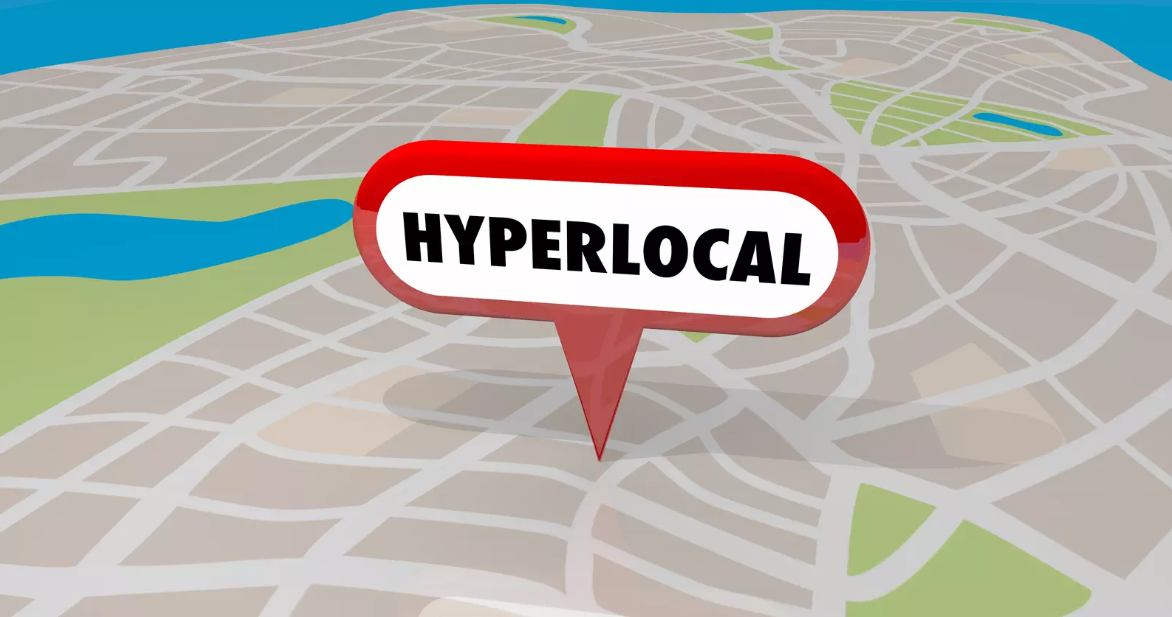So, here’s the thing — I didn’t even know what hyperlocal SEO was until a coffee shop owner I know started bragging about how his Google Maps listing brought in more people than his cute Instagram reels. I thought he was just flexing. Turns out, he was onto something big.
Hyperlocal SEO isn’t some fancy marketing trick. It’s literally just being visible to people near you, right when they need you. Like when someone searches “best pizza near me” and the one two blocks away magically appears at the top — that’s hyperlocal SEO doing its thing.
What the heck is Hyperlocal SEO anyway?
Think of it as SEO, but zoomed in with a magnifying glass.
Instead of targeting the whole city (like “best bakery in New York”), you focus on your exact area — like “best bakery in Brooklyn Heights.”
Google’s basically stalking users’ locations 24/7. If your business signals match what people nearby want, boom, you show up first. Creepy? Maybe. Useful? Definitely.
Why it actually matters
Because people aren’t just searching anymore — they’re searching locally. According to Google (yeah, the big boss), over 46% of all searches have local intent. That means nearly half of people typing stuff into Google are looking for something close to them.
And here’s the kicker — searches that include “near me” have exploded in the past few years. Like “gym near me,” “dentist open now,” or “where to get coffee fast.”
If your business isn’t optimized for those, someone else’s is.
Real-life example (kinda funny)
My friend owns a small vape shop. He was complaining about no foot traffic even though he was doing Instagram ads. I told him to just fix his Google Business profile and add “vape shop near Connaught Place” in his site description.
A week later, he calls me like he just won the lottery — people literally walked in saying, “Hey, we found you on Google Maps.” That’s hyperlocal SEO in action. No expensive ads, no influencer collabs, just… showing up.
How to actually do it (without losing your mind)
Alright, so here’s where people overcomplicate things. But it’s really just a few steps done right:
1. Google My Business (GMB) is your best friend
Fill it up like your dating profile — photos, hours, description, reviews, everything. Add keywords naturally (like your area or neighborhood).
2. Get reviews — real ones
Google trusts humans more than you. Reviews make your profile rank higher and look alive.
3. Local citations
List your business on directories like Yelp, Justdial, or niche local sites. Keep the name, address, and phone number exactly the same everywhere. (Consistency is boring but powerful.)
4. Geo-targeted content
Write stuff that screams “I’m local.” Blog about your area, mention landmarks, even talk about nearby events. Google eats that up.
5. Optimize for voice search
People use Siri and Alexa way more than you think. “Hey Siri, find a plumber near me” is basically a goldmine for local businesses.
Fun fact
A 2024 BrightLocal study said that 78% of local searches on mobile end in an offline purchase within a day. Translation: if someone finds your business near them, they’ll probably show up today.
That’s faster than half of Tinder dates turning into actual meetings.
What people get wrong
Some businesses stuff their sites with “near me” like it’s glitter — throwing it everywhere. Doesn’t work like that. Google’s smarter now; it uses GPS, user behavior, and review consistency. You can’t trick it by saying “near me” 50 times.
FAQs about Hyperlocal SEO
| Question | Answer |
|---|---|
| 1. Is hyperlocal SEO different from normal local SEO? | Yeah, it’s like the micro version. Local SEO targets a city or region; hyperlocal zooms in on specific neighborhoods or even streets. |
| 2. How long does it take to see results? | Usually a few weeks to a couple of months. It depends on how competitive your area is and how active your GMB profile is. |
| 3. Can small shops really beat big brands with this? | 100%. Big brands can’t target every corner; hyperlocal SEO lets you dominate your immediate surroundings. |
| 4. Does social media help with hyperlocal SEO? | Indirectly, yes. Posts with local hashtags or geo-tags can drive traffic and brand mentions that Google notices. |
| 5. Is it expensive? | Not really. Most of it is free — listing your business, optimizing your profile, getting reviews. It just takes a bit of consistent effort. |
Look, the internet’s crowded. Hyperlocal SEO is like shouting across the room but straight into your neighbor’s ear — not the whole building’s. You’re not trying to be everywhere, just in the right place at the right time.
And honestly, when someone’s searching “coffee near me” at 7 a.m., that’s not just a search. That’s a cry for help — make sure it’s your café that answers.



